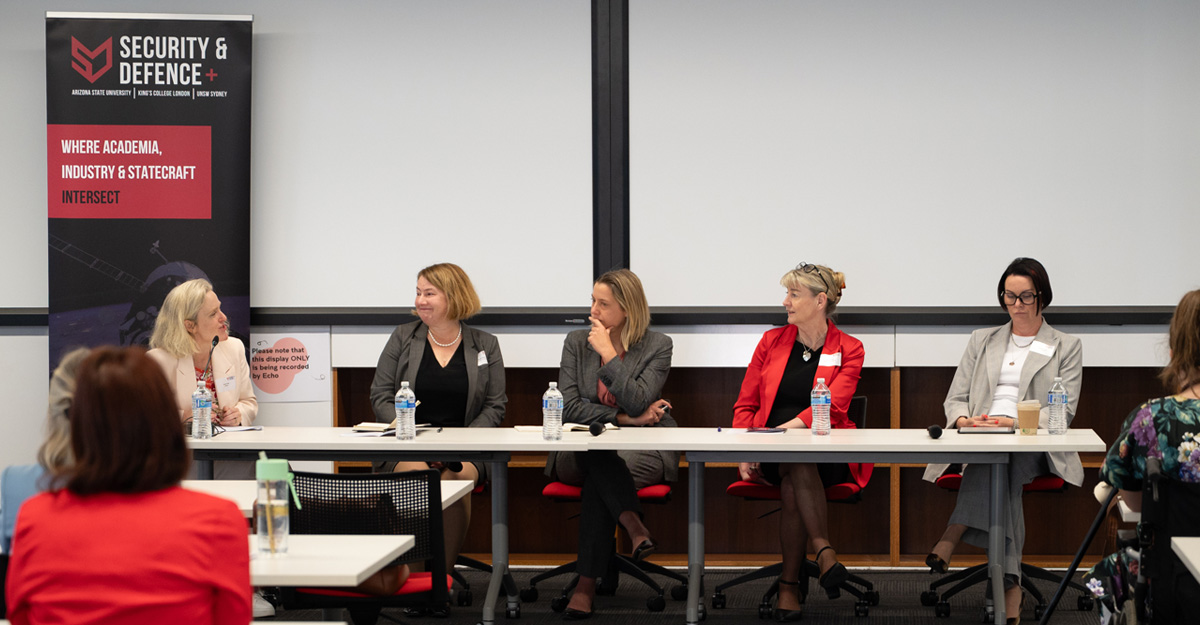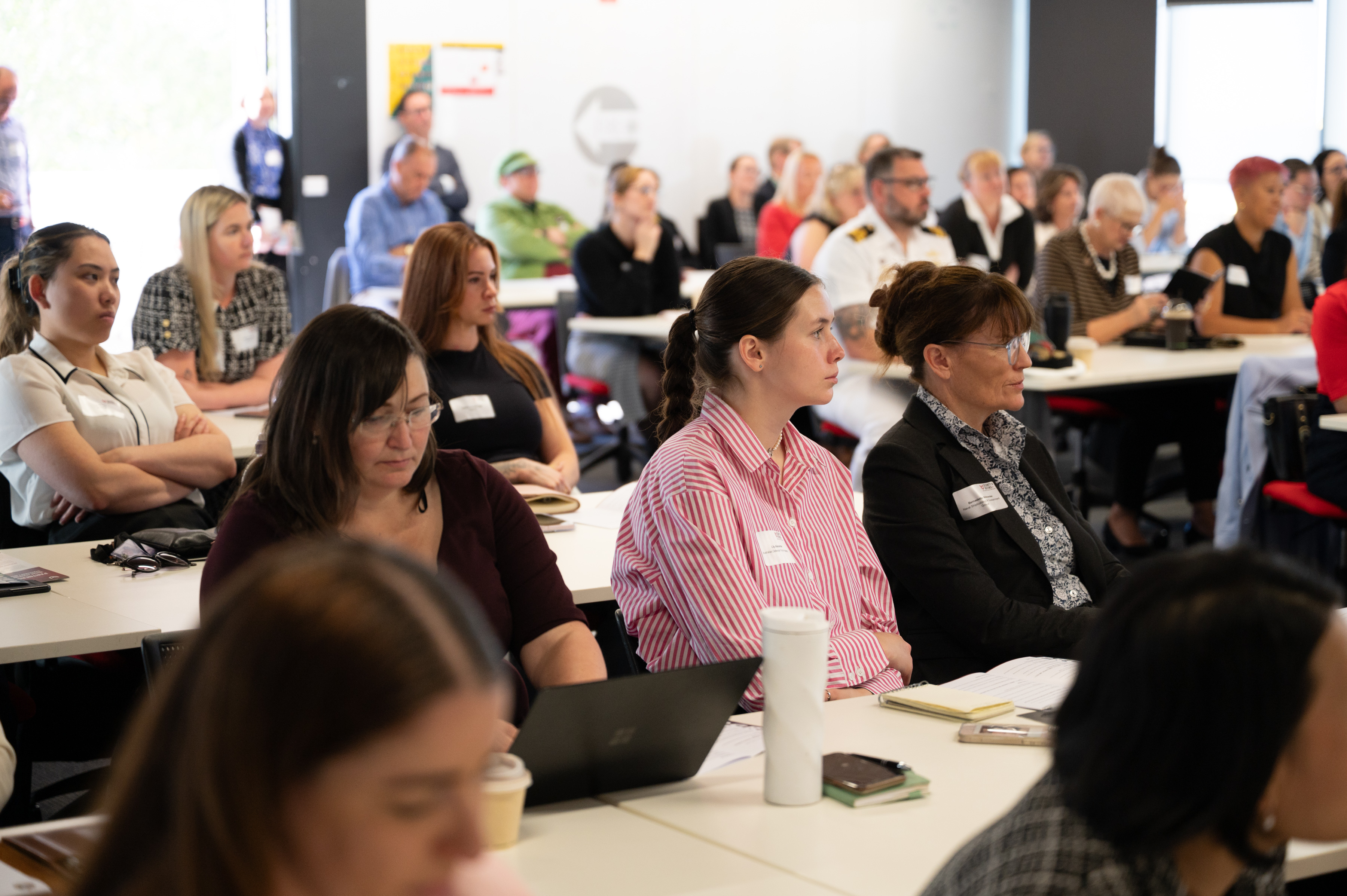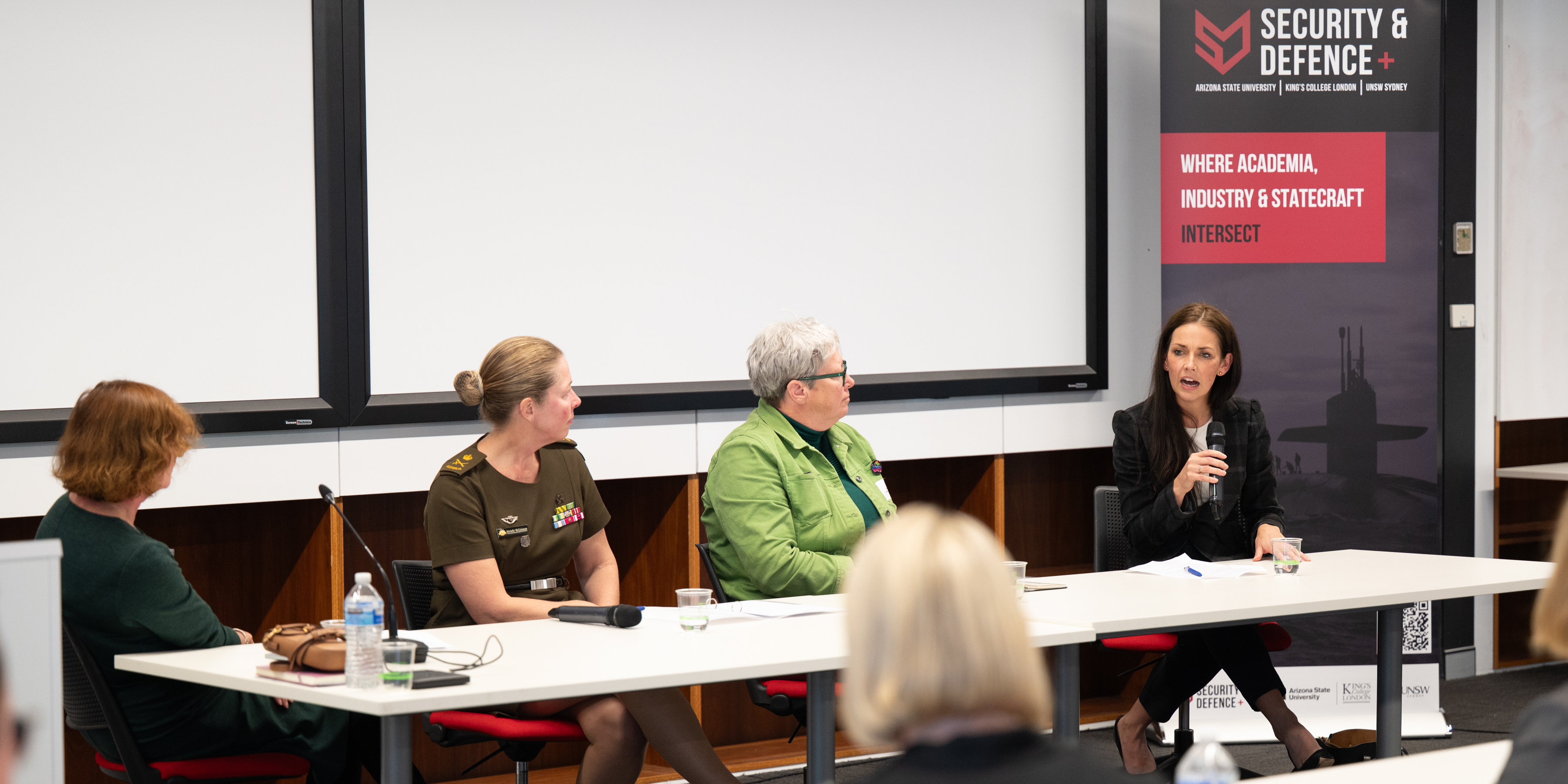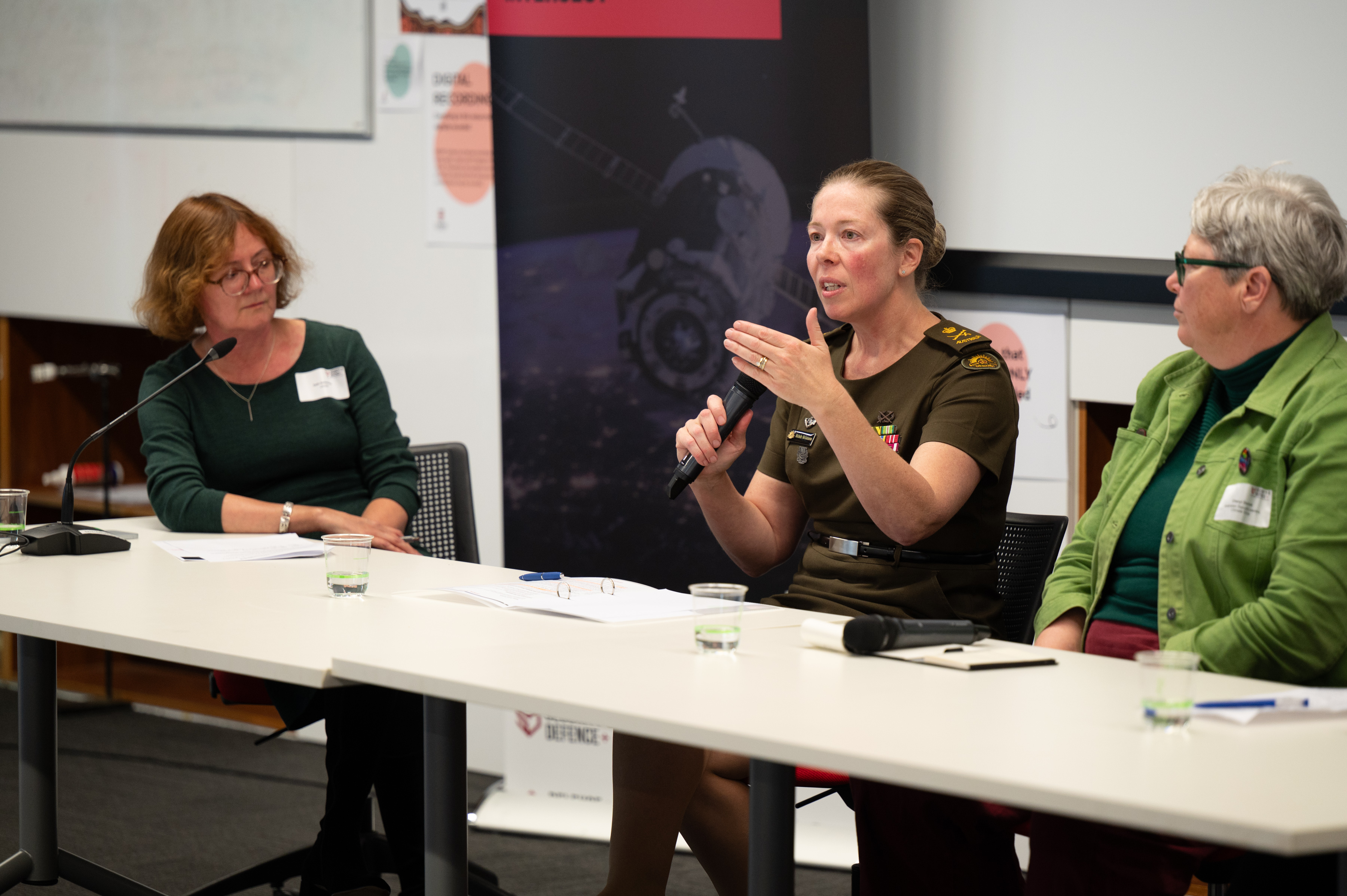
The Athena Series Canberra explored women’s leadership in evolving security landscapes.
The third event in the Security & Defence PLuS Athena Series was hosted at UNSW Canberra at the Australian Defence Force Academy on Monday 7 April 2025. It convened some of Australia's most influential leaders and expert voices in strategy and security and defence to reflect, challenge and imagine a more inclusive future in these fields.
The conference opened with Professor Emma Sparks, UNSW Canberra Rector.
“Groups and organisations that embrace diversity in leadership are better equipped to handle complex challenges” she said, highlighting how greater representation of women in leadership leads to more informed decision-making, a theme echoed across the day’s discussions.

The opening panel, ‘Pioneering Leadership in Strategy, Security and Defence’ was introduced and moderated by UNSW Vice-President Societal Impact, Equity & Engagement Professor Verity Firth AM. The panel featured four women in senior strategic roles who spoke candidly about setbacks, personal growth and how failure can be a crucible for leadership.
Jacinta Carroll, Assistant Secretary, Strategy and Governance, Headquarters Joint Capabilities Group, reframed failure as part of progress.
“You fail when you test a system, and you test so that you can adjust … If we’re not testing, experimenting, and being curious, are we actually being leaders?”, she said.
Justine Greig, Deputy Secretary Defence People, emphasised the importance of cultivating and keeping relationships and networks, especially in times of crisis.
The theme of connection was picked up again in ‘Women’s Leadership and the Critical Challenges of our Time’, where each panellist stressed that leadership in today’s environment requires openness to diverse perspectives, adaptability and strong, trusted networks.

Mikayla James, Acting Head of Policy, Strategy and Engagement at the Australian Submarine Agency offers her perspective from the AUKUS program.
Moderated by Professor Debi Ashenden, Director of the Institute for Cyber Security at UNSW, the panel examined the evolving definition of national security, expanding the conversation beyond traditional boundaries.
“National security can no longer, if it ever could, be neatly compartmentalised into defence, foreign affairs and intelligence ... We can’t solve our security problems in silos – our vulnerabilities are interconnected, and our threats are many and various,” she said

Lieutenant General Michelle McGuinness, Australia’s National Cyber Security Coordinator.
Lieutenant General Michelle McGuiness echoed this sentiment, highlighting the increasing pace and complexity of threats. Cheryl Durrant, Executive Member of the Australian Security Leaders Climate Group, reminded the audience of the environmental dimension and pushed for a paradigm shift. She spoke about how these environmental problems don’t respect borders and their issues can’t be solved by individual countries alone.
In ‘Geopolitics, Grand Strategy and Gender Perspectives in the Indo-Pacific’, a panel of regional experts explored the volatile dynamics shaping the region, particularly in the context of a second Trump administration and intensifying US–China rivalry. Professor Bec Strating of La Trobe University said, “We are in a perfect economic and security storm.”
The Australian Security Policy Institute’s Dr Raji Rajagopalan highlighted the limits of current alliance structures without US support and the need for more mini-lateral partnerships. Dr Miranda Booth, lecturer at UNSW Canberra, focused on strategic competition in humanitarian assistance and disaster relief (HADR) and positioned Australia as a potential regional leader in this space.
The conversation also drew attention to the gendered implications of geopolitics and the erosion of diversity, equity and inclusion (DEI) initiatives under strongman leadership models.
‘Women’s Pathways into Defence and Inclusive Military Reform’ turned the lens inward on institutional change and reform within the Australian Defence Force (ADF). Rear Admiral Letitia Van Stralen emphasised the importance of diversity of thought, while Susan Hutchinson highlighted the cost of overlooking gendered analysis in operations.
Brigadier Caitlin Langford spoke to building institutional wellbeing through a person-centred model. “Fundamentally, we want to live well, serve well and then transition well … At the heart of it, for Defence, it’s about capability,” she said.
A future-focused dialogue unfolded in the ‘Industry and Innovation’ fireside chat, where Dr Marigold Black from Norfolk Advisory and Karen Schilling, ACT Defence and Advanced Technology Industry Advocate, addressed the hurdles of innovation translation and defence industry collaboration.
Both speakers emphasised the importance of agility and preparedness.
“The problem with innovation, is what we don’t need today, we will need in five years … We’re at risk of not having what we are going to need in the future,” Ms Schilling said.
The Athena Series continues to challenge orthodoxies in defence and strategy and shine a light on the diverse experts and leaders driving progress across the field. The event was a reminder that leadership, in all its forms, must evolve with courage, curiosity and accountability.
Watch the livestream of the event and use the ‘Key Moments’ function to navigate to individual sessions.
- Log in to post comments
